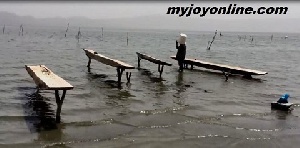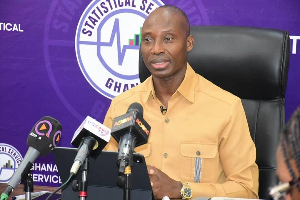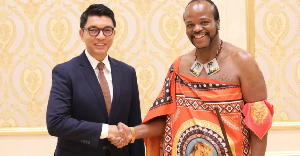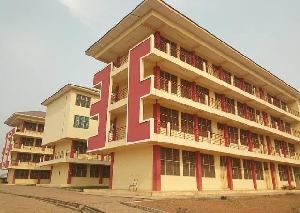The University of Energy and Natural Resources (UENR) in partnership with four other institutions is undertaking studies in Lake Bosomtwe and its environs in the Bosomtwe District of Ashanti Region.
Professor Harrison Kwame Dapaah, the Vice-Chancellor (VC) announced in his 2017/2018 academic year report at the University’s third congregation on Saturday in Sunyani, saying the project was being funded with a US$1.2 million Danish International Development Agency Grant
He said the research dubbed “Building Resilience of Lake Bosomtwe to Climate Change (RELAB)” was led by Dr Peter Sanful of the Department of Fisheries and Water Resources at the University.
The Project was under the Goal Two of the Sustainable Development Goals (SDGs), which envisioned that by 2030 the world could end hunger, achieve food security, improve nutrition and promote sustainable agriculture among others, the VC said.
The ultimate objective of the project was to protect urban agricultural investment in Ghana to provide employment, healthy food, protect the environment and deliver on the nation’s Gross Domestic Product growth commitments, Prof. Dapaah added.
He said the project would establish UENR as the Centre of Expertise in innovative and technology transfer centre for the urban agricultural sub-sector where industry, academia and other benefactors could access the research and training opportunities the University offered.
Touching on major infrastructural challenges, Prof. Dapaah said they included the need for multi-purpose auditoriums and libraries, lecture hall complex and laboratories with modern equipment for world class Science and Technology University.
He added that others were halls of residence, offices for staff and PhD students as well as housing for teaching and non-teaching staff.
Prof. Dapaah stressed that those were required not only in the Sunyani campus but also at the other three campuses at Nsoatre in Sunyani West District, Dormaa-Ahenkro in Dormaa Central Municipality and Kenyasi Number Two in Asutifi North District of the Brong-Ahafo Region.
The VC stated that transportation, health and agriculture challenges included the need for buses and pick-up vehicles, tractors and accessories as well as farm machinery and an inter-campus shuttle system for staff and students and well-equipped University Clinic for all campuses.
Technical and security-related challenges, Prof Dapaah indicated also comprised fibre optic cabling of three campuses (ICT infrastructure), consistent high speed internet connectivity, teaching aids and books for teaching, learning and research, fencing of UENR lands to prevent encroachment, Police Post, Police visibility and night patrols on all campuses.
Meanwhile 876 graduands including 21 post-graduates graduated with Bachelor’s, Master of Philosophy (MPhil) and Master of Science (MSc) degrees.
The post-graduates after two years of studies obtained MPhil, Social Forestry and Environmental Governance, MSc Environmental Engineering Management and MSc, Sustainable Energy Management degrees.
The number comprised 733 males, representing 83.7 per cent and 143 females, indicating 15.3 per cent and the award of the post-graduate degrees were the first time in the history of the University.
Business News of Monday, 13 August 2018
Source: ghananewsagency.org













